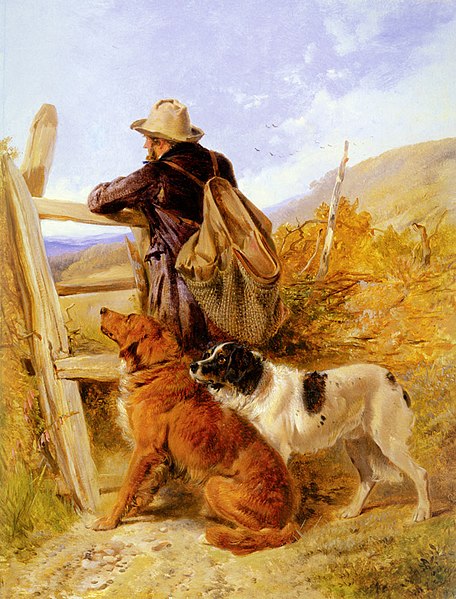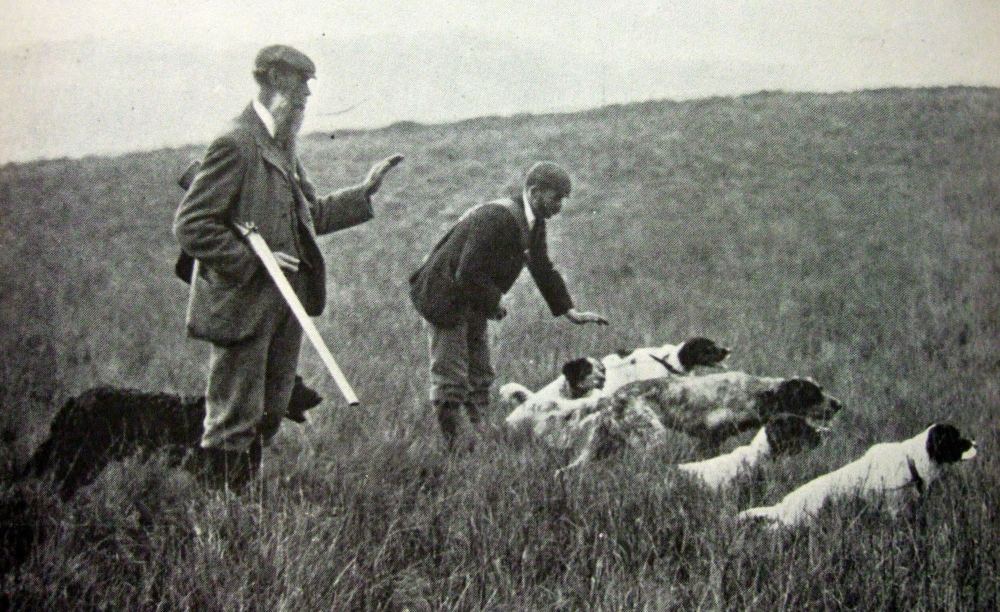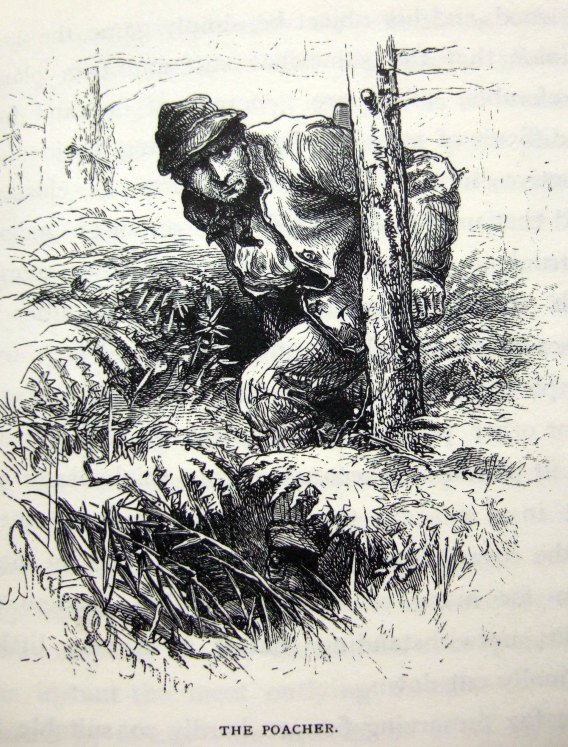Gamekeepers are employed by land owners to ensure there is enough game or fish for the owner’s sport. People in this occupation use an intense knowledge of the land and of wildlife to create habitats best suited to the game they hope to cultivate.

Activities include, building coverts, planting food sources, breeding birds, and eliminating predators. Although the focus of such efforts is game and game birds, other wildlife in the area often benefits was well.

Gamekeepers also organize the hunts. Not only do they guide hunters and stalkers to the best spots and provide game law information, they are also involved with the tools of the hunt. They rear and train hunting dogs, flush game, and collect and document the bag of the hunt.

This is an old profession, probably it’s been around ever since individual people owned large swaths of land. In Medieval times gamekeepers were royal appointments and tended to focus mostly on protecting deer and wild boar as these were favorite royal game animals. Traditionally gamekeeping is a male occupation, however in his book, The Big Shots: Edwardian Shooting Parties, Jonathan Garnier Ruffer describes the exploits of at least one early female gamekeeper.

In the 1820s Polly Fishbourne was the gamekeeper at Holkham estate. She had a reputation for ferocity and so was fortunate to find herself in a profession that offered a ready target for her aggression – she was the bane of the local poachers. Women also make appearances as gamekeepers during World War I, often filling in for their husbands.
The Library’s resources on gamekeeping are focused on Great Britain from the very late 18th century through the 20th century. Some books are essentially gamekeeping text books such as, The Gamekeeper’s Note Book, by Owen Jones and Marcus Woodward (1910). This book gives a detailed description of the keeper’s daily activities over the course of the year.

Other books give a more general overview of the lifestyle and tasks of the gamekeeper. For example, The Gamekeeper at Home by Richard Jefferies (first published in 1879) not only talks about the gamekeeper’s techniques and work, but also describes his living conditions, and the likely occupations of his wife.
For me, the most interesting books by far are the autobiographies written by the gamekeepers themselves. These colorful accounts of how the authors came to be gamekeepers and of the adventures they had during their careers are quite entertaining.

A good example is this excerpt from The Autobiography of an English Gamekeeper, by John Wilkins (1892), in which he describes tricking a known poacher into stealing a clutch of rotten eggs, and the encounter that follows…
“”Good morning, John,” says Harry, as soon as he sees me. “Good morning, Harry,” says I, politely. “I was just remarking,” says Harry, “What a pity it is to cut down such nice, young oak timber, just growing into money.” Whereat his two companions burst out laughing, thinking, no doubt, how nicely he was smoothing me over. “You seem amused, my dear,” he went on, pleasantly, addressing the maid, who had a nest full of eggs in her hands. “She is so fond of bird’s eggs, John.” This to me, of course. They all laughed again at this, and I, nothing loth, joined in. When I thought that they had laughed enough, at my expense, I stepped up to Harry, who was still on the grin, and said: — “Yes, and so are you fond of bird’s eggs, aren’t you?” In a moment his countenance changed, and the grin grew ghastly, as he angrily asked what I meant. “I mean,” said I, “That pocketful of pheasant’s eggs you took from that clump of briars up yonder.” And before he knew what I was up to, I struck his pockets with the flat of my hand, and smash went the rotten egg!

At this he began cursing and swearing, but I merely remarked: — “Good morning, Harry.” Then, turning to the other two, I observed :– “you won’t be so fast to laugh at John Wilkins another time, perhaps.” Thereupon I left them, I indulging in a little mirth on my own account, but you should have seen the change that came over their countenances!” (Autobiography of an English Gamekeeper, p. 112-113)
Interestingly, in addition to the books on gamekeeping, the Library has quite a few about poachers and poaching.

They tend to fall into categories similar to those on gamekeeping. Topics include the various tools and techniques of the poacher, specific guides for capturing various types of animals, general woodcraft advice, and techniques for avoiding gamekeepers and the law. The personal accounts of poachers are even more colorful than those of the their opponents, the gamekeepers.

The fascinating thing about the tales of ‘gamekeeper vs. poacher’ is how they’re told with a sense of nostalgia by gamekeepers and poachers alike. Despite the injuries sustained on both sides in these conflicts, and the often stiff penalties incurred by the poachers, including fines, prison, and transportation, the participants describe these events with pride.

The stories I read were all by retired old men. Perhaps, the distance of time smooths off the rough bits and they are just reliving the glories of youth. They put me in mind of the old Sam Sheepdog and Ralph Wolf cartoons.
Gamekeeping continues today. While the job has evolved over time, many techniques remain the same. Today there are formal training programs at colleges, and professional gamekeeping organizations. To see what is involved check out The Scottish Gamekeepers or National Gamekeepers.
To learn more about gamekeepers, poachers, wildlife conservation, shooting, and hunting, come see me in the Main Reading Room and I’ll be happy to get you started.

Erica Libhart has served as the Mars Technical Services Librarian at the National Sporting Library & Museum (NSLM) since early 2016. The focus of her position is collection services, working to increase accessibility to NSLM’s collection of books, periodicals, and archival materials. The NSLM collections span over 350 years of the history of equestrian sport, as well as fly fishing, wing shooting, and other field sports. Have a question? Contact Erica by e-mail

I thoroughly enjoyed this piece. Who knew, female game keepers. Now that would take a special kinda of tough. It would be great to find a diary written by a women. and compare it to that of a man. The perspectives, and the priorities would be fascinating, to see where they differed.
I also enjoyed the livery, or dress of the various keepers. And, I had to chuckle at the fact that “Polly”, was photographed with a very large weapon! Girl after my own heart!
Great read, and I may have to learn some more about these colorful individuals.
Thanks!
LikeLike